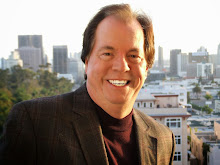Every week, it seems like there's another news story in the newspaper, or on the television, about the plight of someone who has been denied vital medical care. I'm talking about American citizens who have health insurance and pay their bills.
Let's review the case of Scott "Scotty" Eveland, a 17-year old senior at Mission Hills High School in Oceanside, California, who was severely injured and paralyzed while playing for his high school football team last fall. While Scotty is making a slow recovery, doctors who are treating him at a San Diego County hospital, are cautiously optimistic about his progress and recommended to Blue Cross of California that he remain at their facility to receive daily physical therapy.
But, Blue Cross of California decided Scotty's care was costing too much money and ordered him moved to another facility. Despite the protests of Scotty's doctors, family, and the Oceanside community, Blue Cross of California refused to change its ruling. The family appealed the health insurer's decision but lost. The have made a final appeal to California state regulators who can -- and should -- overrule Blue Cross of California.
Blue Cross of California noted in its decision that similar care was available at a lower cost, non-medical facility. The family and physicians tending to Scotty strongly disagree. Something tells me they know best since they are involved in his recovery and care every day.
Given this scenario and the gut-wrenching experiences people and patients must suffer through, I must ask the ultimate question: Why is it that health insurers like Blue Cross of California serve as both judge and jury in these matters?
Something is fundamentally wrong here with the health care system and how it is managed. For two years, the American Consumer Council -- along with other consumer-oriented organizations and government agencies -- have rallied against the health care management establishment to challenge the injustices and unfair practices of companies like CIGNA and Blue Cross of California who serve as both judge and jury. In essence, claimants pay their insurance premiums and then, if it suits the whims and financial goals of the health insurers, they decide whether or not people like Scotty recover or remain in a vegetative state. As harsh as it sounds, that's what medical directors and other so-called "health care professionals" are deciding every day. It's a sham!
Is it possible that medical directors, who once swore allegiance to uphold the best care of their patients when taking the Hippocratic Oath (an oath traditionally taken by physicians pertaining to the ethical practice of medicine), have been bought-off by health insurers and compromised in their ability to make unbiased decisions? I think so. How else does one explain their decisions to deny care? Certainly, these men and women are intelligent people. But, it appears they've lost their ability to act rationally and in the best interest of their patient-claimants in order to save their employers a few thousand dollars! Yes, it's really money, but, it's also about the dignity of human life!
When you read the Hippocratic Oath, which dates back to the Fourth Century, and is attributed to the father of medicine, it states unequivocally what is expected of a physician. This includes the medical directors of health insurers who also took this oath:
- To teach medicine to the sons of my teacher.
- To practice and prescribe to the best of my ability for the good of my patients, and to try to avoid harming them.
- Never to do deliberate harm to anyone for anyone else's interest.
- To avoid violating the morals of my community. (Many licensing agencies will revoke a physician's license for offending the morals of the community).
- To avoid attempting to do things that other specialists can do better.
- To keep the good of the patient as the highest priority.
- To avoid sexual relationships or other inappropriate entanglements with patients and families.
Perhaps it's time for community leaders and families of patients to raise the stakes and organize major boycotts and protests at these companies so that legislators will take action to fix a broken system.
While many health care proposals have been put forward -- including an impractical proposal by Governor Schwarzenegger of California to require all Californians to purchase health insurance -- the ultimate answer, we believe, is for the federal government to adopt a universal health system that provides primary and urgent care for all citizens. Such a plan was introduced by the American Consumer Council and can be viewed at: www.americanconsumercouncil.org
In the final analysis, there must be a national health care program that eliminates health insurers and removes life-and-death decisions from the hands of people who have been compromised in their ability to make unbiased decisions because their allegiance is not to the patient, but rather, a for-profit company that mostly cares about making a profit and not improving the health of the patient.
About the Author. Thomas Hinton is the president of the American Consumer Council and can be reached at tom@americanconsumercouncil.org
